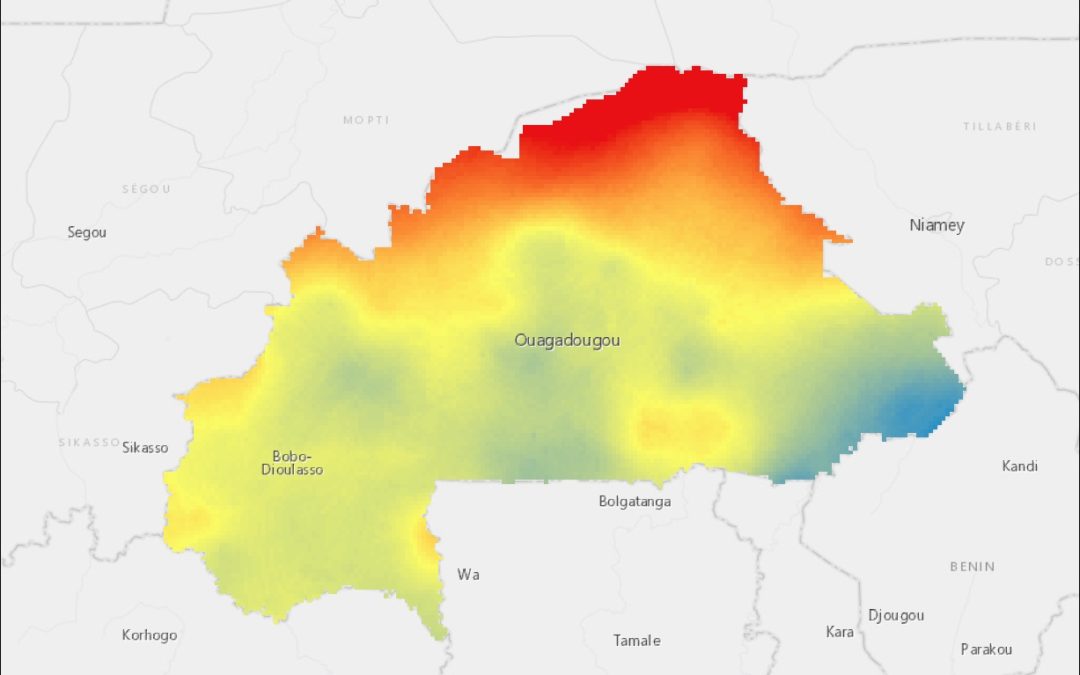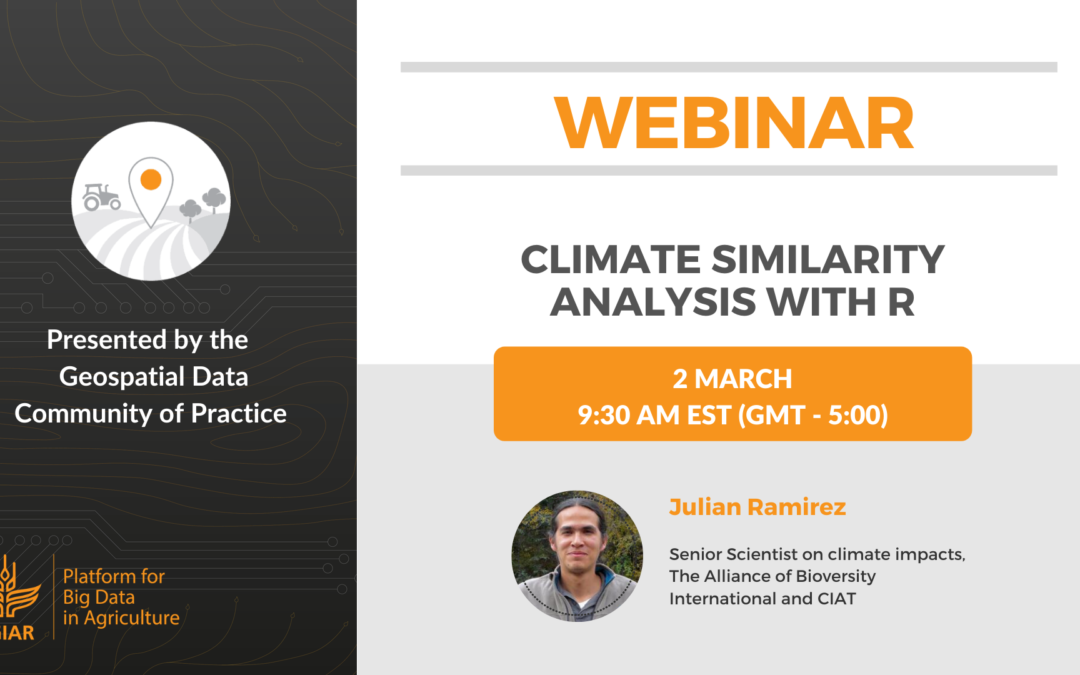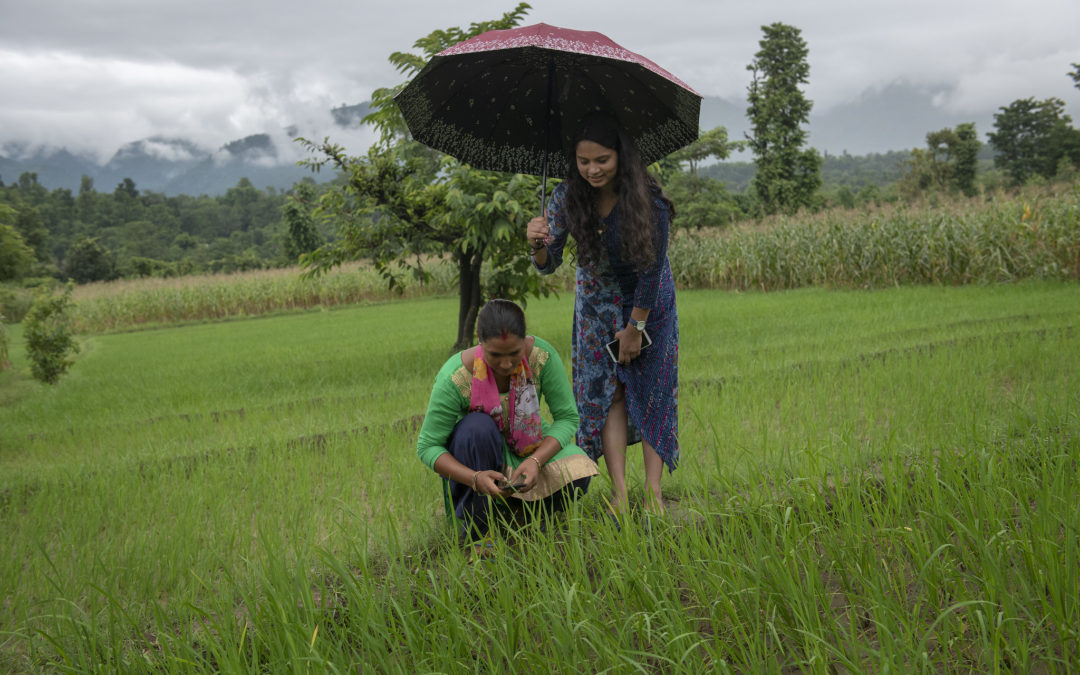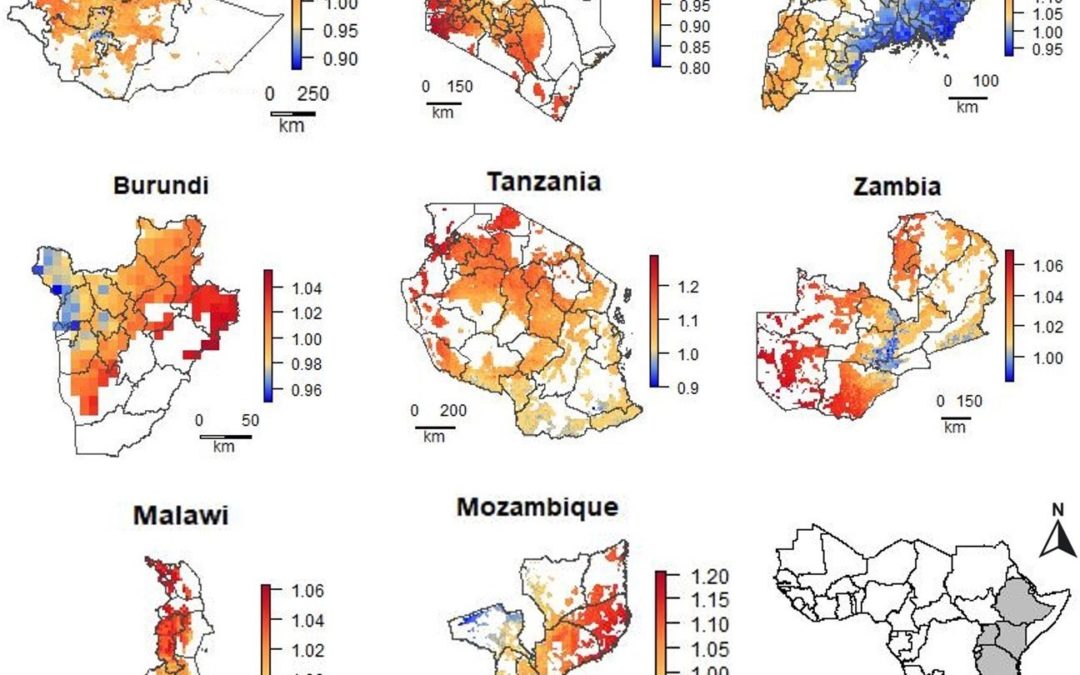
Where can I find the monthly historical weather data for Burkina Faso?
“Does anybody know a reliable source to extract temperature and rainfall data in 2017 and 2018 for specific locations in Burkina Faso ?” – HG

by CGIAR-CSI | Mar 31, 2020 | Communities of Practice, Geospatial CoP
“Does anybody know a reliable source to extract temperature and rainfall data in 2017 and 2018 for specific locations in Burkina Faso ?” – HG

by Hannah Craig | Mar 11, 2020 | Communities of Practice, Geospatial CoP, News, Webinar
Webinar organized by the Geospatial Data Community of Practice of the CGIAR Platform for Big Data in Agriculture.

by CGIAR-CSI | Mar 8, 2020 | Geospatial CoP
Strategies and technologies for adapting to climate change in particular locations should ideally be grounded in knowledge of the future climatic conditions in those locations. Estimates hold that 70% of future climates already exist somewhere in the world. That is where the analogues approach comes in. Using global climate projection data from multiple models, the […]

by Hannah Craig | Mar 4, 2020 | CGIAR Updates, Featured, News
In 2019, a working group comprised of CGIAR funders and center and program made recommendations of possible improvements to the efficiency of CGIAR. Here´s a look at what’s ahead for the “One CGIAR” overhaul.

by CGIAR-CSI | Jan 21, 2020 | Geospatial CoP
A new study developed by UC Davis, CIMMYT, and IFPRI is the first major attempt to systematically describe the spatial variability of fertilizer prices within the target countries and test the ability to estimate the price at unsampled locations.
CGIAR Platform for Big Data in Agriculture advocates open data for agricultural research for development. It considers that opening up research data for scrutiny and reuse confers significant benefits to society.
However, the Platform appreciates that not all research data can be open and that a broad range of legitimate circumstances may require data to be restricted.

As an integral component of its advocacy for open data, the Platform promotes responsible data management through the entire research data lifecycle from planning, collecting, storing, disclosing or publishing, transferring, discovery and archiving.
These guidelines were created from information collected from: review on best and emerging practices across various sectors in the fast changing landscape of privacy and ethics (130 external resources); privacy and ethic materials sourced from seven CGIAR centers; first draft was circulated for input and feedback across CGIAR and incorporated into this edition. It’s important to note that this is an evolving document, the next stage is to consult externally for further input.
These Guidelines are intended to assist agricultural researchers handle privacy and personally identifiable information (PII) in the research project data lifecycle.


Ensure compatibility with the DMP-PII (as above) and also the purpose for which prior informed consent has been obtained
Ensure PII is stored securely to protect privacy, through organizational or project specific safeguards to prevent unauthorized access, accidental disclosure or breach of data (physical & technical)
Don’t store data in unsecured locations or on unsecured devices or servers
Don’t store encrypted data and encryption keys in locations where they can be easily accessed simultaneously
Don’t underestimate the importance and value of administrative safeguards to standardize practices (i.e. organizational policies, procedures and maintenance of security measures that are designed to protect private information, data and access)